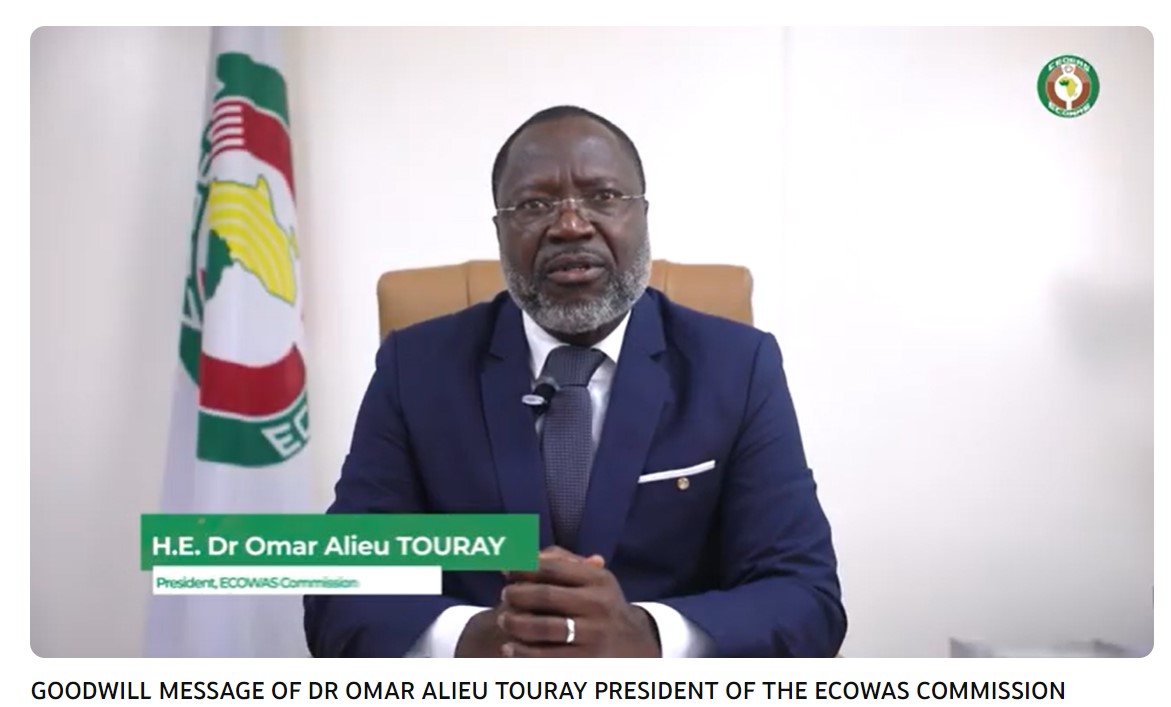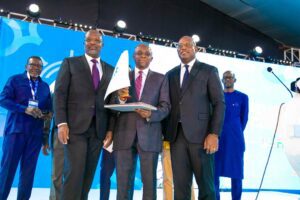


ECOWAS Commission President lauds ICC’s maritime security achievements in Gulf of Guinea
The President of the ECOWAS Commission, Dr Omar Touray, has lauded the efforts of the Inter-regional Coordination Centre, ICC, for its maritime security achievements in the Gulf of Guinea.
Touray made this known at the 4th Annual Meeting of the Heads of Institution (HOI) of the ICC, at the ECOWAS Commission Headquarters in Abuja, on Thursday.
The News Agency of Nigeria (NAN) reports that ICC was created in September 2014 by ECOWAS, the Economic Community of Central African States (ECCAS) and the Gulf of Guinea Commission (GGC).
It was created to serve as the Coordination Centre on maritime security in the Gulf of Guinea following the 2013 Yaoundé Summit of ECOWAS, ECCAS and GGC Heads of State and Government.
Touray said: “Since the Political Declaration of our Heads of State, substantial progress has been made in our maritime community.
”This included the adoption of National Maritime Strategies and the deployment of critical maritime infrastructure that has improved maritime situational awareness.
“With regards to our MoU, some progress has been achieved by the governing body on inter-institutional coordination.
”The Coordination Centre receives funding, and its annual Work Plan and Budget are approved, including the operations of Maritime Operational Centres.”
Touray said that in view of the importance of ICC for global maritime security and safety, it also attracted the interest of many development partners.
The commission’s President listed them to include the G77++ Friends of the Gulf of Guinea, the European Union, the German Federal Government and the Chinese Government for their different support and assistance.
“Their assistance has contributed to our success in establishing the ECOWAS Regional Maritime Security Centre (CRESMAO) in Abidjan, with three Multinational Maritime Coordination Centres (MMCC) in Cotonou (Zone E), in Accra (Zone F), and in Praia (Zone G).
“Similarly, the ECCAS Maritime Security Architecture established a Regional Centre for Maritime Security in Central Africa (CRESMAC) in Pointe Noire, as well as Multinational Maritime Coordination Centres in Douala (Zone D) and in Luanda (Zone A).
“The establishment of maritime information sharing networks between ECOWAS and ECCAS have improved information sharing and situational awareness,” he said.
Touray also said that the Gulf of Guinea has continued to witness a downward trend in piracy and armed robbery attacks.
He added, “According to the International Maritime Bureau (IMB), actual and attempted piracy and sea robbery incidents saw a downturn trend from 31 in 2015, 18 in 2021 to 15 in 2022.
“Incidences of piracy and armed robbery further declined to 6 attacks in the first quarter of 2024 in the Gulf of Guinea. This is thanks to our institutional actions and collective responses.”
Touray, however, stated that in spite of such laudable progress, the ICC had serious challenges, which included non-recruitment of key staff, irregular funding, and breakdown of essential services.
He said that there was still a need for regular review of the progress and challenges on the level of implementation of the Declaration, stressing that it was important to take concrete steps to address the challenges.
“The Code of Conduct on the Prevention and Suppression of Acts of Piracy, Armed Robbery Against Ships and Illicit Maritime Activities in West and Central Africa was supposed to be turned into a legally binding Agreement three years after its adoption in Yaoundé in 2013.
“Thus far, we have not achieved this after the 10th Year Anniversary of the Yaoundé process. It is therefore important that we critically appraise our institutional responses on the Code of Conduct,” he said.
Touray urged the ICC governing body, which comprises the Presidents of the Commissions of ECOWAS and ECCAS, and the Executive Secretary of the GGC, to review a new EU project, ‘Safe Seas’ for the region and the Yaoundé Architecture Regional Information Sharing (YARIS) tool.
He also called on member states to streamline development corporations and partnerships to ensure that ICC provided the necessary oversight to guide the Coordination Centre.
Also speaking, the Executive Secretary, Gulf of Guinea Commission, Jose Abeso, said the region was still facing the challenges of maritime insecurity, stressing that the objective was to eliminate all forms of criminality in the domain.
He said that the law on criminal activities in the maritime sector in the Gulf of Guinea should be harmonized to act as effective detriments against committing such crimes.
“Our maritime domain is the next destination for the sustainable economic development of our countries.
”Our governments cannot or should not leave the running of institutions meant to patrol this area, to ensure that security and safety of activities is not left to third parties,” Abeso said.
Participants at the event included the President of the Commission of the Economic Community of Central African States (ECCAS), Gilberto Verissimo.
Others were the representative of the UN Office for West Africa and Sahel (UNOWAS) and that of the UN Regional Office for Central Africa (UNOCA), among others.



